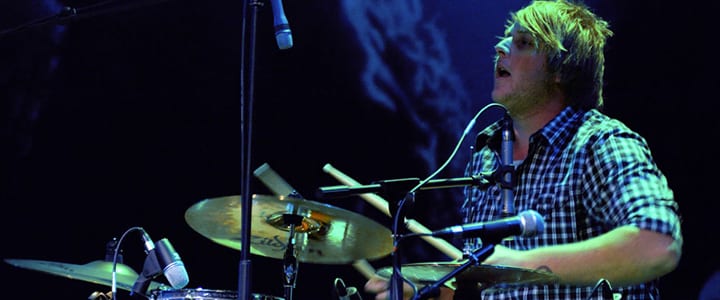If you practice hard and stick with your drum lessons, you’ll eventually be ready to take the stage for your first drum performance. Whether you’re playing a local gig or you have aspirations to make money playing drums, we want to help you prepare to rock your first show. Here, San Diego, CA drum instructor Maegan W. shares her eight-step checklist to help you nail your first drum performance..
So it’s time for your first drum performance — do you feel nervous? Don’t worry, that’s normal; being nervous just means you care. Once you stop getting nervous, that’s when you need to worry.
Remember, you have done all the work: practice, promotion, networking… and here it is, your first drum gig!
Here are eight things you can do to be successful at your first drum performance. By the way, this checklist is also great for your 20th, 100th, or 1000th gig, too.
Make sure you know the set list inside and out. If you think you’ve got it, run the set one more time, and then one more time after that.
Once you’re on that stage, your mind will be in a million places, and you’ll need to rely on muscle memory to help you through. The more you play and practice before you take the stage, the less you will have to think when you’re up there.
Once you hit the stage, you can have fun and let loose!
Before your gig, practice counting in to your metronome. This may seem silly, but you’d be surprised how easy it is to add an extra 10 bps when your heart is racing with the adrenaline of a live show.
Lock in the time, and make sure you can remember how the song starts so you don’t get confused.
Preparing for a gig doesn’t stop after your practice your songs. Before the show, make a gear checklist or a counting system so you don’t forget anything. Write down the items you need: your set list, your throne, a rug, etc.
There’s nothing worse than forgetting something you need for a show.
You don’t just want to be prepared, when it comes to playing a show, you want to be over prepared. Bring a spare snare or drum head, and bring extra drum sticks. Throw in an extra pedal, if you have one, and an extra cymbal. You may not want to lug the extra supplies to the gig, but once you’re there it’s too late, so bring them just in case you need them.
Here are some more suggestions, for musicians in general, of important items to pack in your gig bag.
Have someone film your show. Don’t let this distract you, this is not to make you a YouTube star; not yet, anyway. Video is a great learning tool. The best way to learn and improve is by watching yourself.
Don’t beat yourself up if you’re not happy with your performance; use it as an opportunity to learn.
What’s the real point of playing this show? What’s the end result for you? If you’re considering drums as a career, than you must always think bigger than the current gig, and always look for opportunities.
Bring some business cards with your contact information. Be ready to meet people that may be good connections to help you book more gigs.
Part of being prepared is being professional. Always act like there’s someone important in the crowd, you never know who’s watching. Behave as you would in a job interview (for something cool that you love to do).
The point of playing, besides having a blast, is to get exposure and grow your business (if this is your ultimate goal). Never overlook an opportunity, this is what separates the wannabes from the professionals.
There is absolutely no point to any of this if you’re not having fun. Playing gigs requires a lot of time, energy, and preparation, so if you’re not having fun, you will burn out or lose interest.
When it really comes down to it, the reason you started playing drums is because it’s fun and you love to do it. remember that, above all, when you play your first gig.
I hope this helps, I know you’re going to have a great drum performance. Playing live is a learning experience; don’t beat yourself up if you make a mistake.
I’ve learned something new at each and every gig (and I’ve played hundreds). Sometimes the lessons are embarrassing, but they always help me learn and improve.
What lessons have you learned from playing gigs? Share them with us in the comments below!

Post Author: Maegan W.
Maegan W. teaches drums, songwriting, and more in San Diego, CA. She earned a degree in Percussion from the Musician’s Institute, and has been teaching private lessons since 2004. Learn more about Maegan here!
Photo by Ashraf Saleh
Maile Proctor










